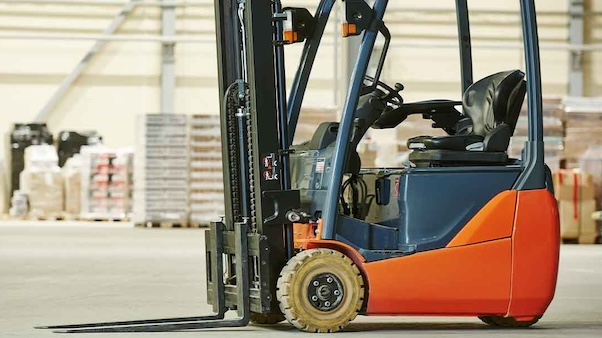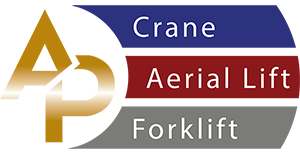
Forklift trucks, often referred to simply as forklifts, play a crucial role in various industries by efficiently lifting and transporting heavy loads. There are several types of forklift trucks available, each designed to cater to specific needs and environments. Explore the different types of forklift trucks, their features, benefits, and applications, helping you make an informed decision when choosing the right forklift for your operations.
We offer Forklift Training and forklift certification courses and the safe operation of aerial lift training. Get a forklift license with our online forklift certification.
Electric Powered Forklift Trucks
Advantages of Electric Powered Forklift Trucks- Eco-Friendly Operation: Electric forklift trucks produce zero emissions, making them an excellent choice for indoor use and environmentally sensitive areas.
- Quiet Operation: Electric forklifts operate silently, reducing noise pollution in the workplace.
- Lower Maintenance Costs: With fewer moving parts and no need for fuel, electric forklifts generally have lower maintenance requirements.
- Limited Battery Life: Electric forklifts require recharging and may have limited battery life for continuous operation.
- Initial Cost: Electric forklifts can have a higher upfront cost due to the expense of batteries and chargers.
Diesel Powered Forklift Trucks:
Advantages of Diesel Powered Forklift Trucks- High Torque: Diesel forklifts offer powerful torque, making them suitable for heavy lifting and demanding tasks.
- Versatility: Diesel forklifts perform well in outdoor and rugged environments.
- Longevity: Diesel engines are robust and durable, contributing to a longer lifespan.
- Emissions and Noise: Diesel forklifts emit exhaust fumes and can be noisy, limiting their indoor use.
- Higher Fuel Costs: Diesel fuel costs can fluctuate, impacting operational expenses.
Gas or LPG Powered Forklift Trucks:
Balance of Economy and Performance
Advantages of Gas or LPG Powered Forklift Trucks- Affordability: Gas and LPG forklifts are often more budget-friendly than other options.
- Versatile Fuel Source: LPG is readily available and can be refueled quickly.
- Reduced Emissions: Gas forklifts produce fewer emissions compared to diesel counterparts.
- Maintenance Costs: Gas forklifts may have higher maintenance costs due to the complexity of internal combustion engines.
- Noise Levels: While quieter than diesel, gas forklifts may still produce noticeable noise.
Stand-up Forklift Trucks:
Compact and Maneuverable
Advantages of Stand-up Forklift Trucks
- Space Efficiency: Stand-up forklifts have a smaller footprint, making them ideal for confined spaces.
- Ease of Operation: Operators can quickly step on and off the forklift, increasing efficiency.
Disadvantages of Stand-up Forklift Trucks
- Operator Fatigue: Extended use can lead to operator fatigue due to the standing position.
- Limited Visibility: Visibility may be reduced compared to sit-down forklifts.
Sit-down Forklift Trucks:
Comfort and Control
Advantages of Sit-down Forklift Trucks
- Operator Comfort: Sit-down forklifts provide a more comfortable and ergonomic workspace.
- Enhanced Visibility: Operators often have better visibility from a seated position.
Disadvantages of Sit-down Forklift Trucks
- Space Requirements: Sit-down forklifts typically require more space to maneuver.
- Initial Cost: These forklifts may have a higher initial purchase price.
Rough Terrain Forklift Trucks:
Tackling Tough Terrains
Advantages of Rough Terrain Forklift Trucks
- Off-Road Capability: Rough terrain forklifts are designed to navigate challenging outdoor terrains.
- Stability: These forklifts offer enhanced stability on uneven surfaces.
Disadvantages of Rough Terrain Forklift Trucks
- Limited Indoor Use: Rough terrain forklifts are primarily designed for outdoor use and may not be suitable for indoor applications.
- Maintenance Complexity: The rugged design may lead to more complex maintenance needs.
- Operator Comfort: Sit-down forklifts provide a more comfortable and ergonomic workspace.
- Enhanced Visibility: Operators often have better visibility from a seated position.
- Space Requirements: Sit-down forklifts typically require more space to maneuver.
- Initial Cost: These forklifts may have a higher initial purchase price.
Rough Terrain Forklift Trucks:
Tackling Tough Terrains
Advantages of Rough Terrain Forklift Trucks
- Off-Road Capability: Rough terrain forklifts are designed to navigate challenging outdoor terrains.
- Stability: These forklifts offer enhanced stability on uneven surfaces.
Disadvantages of Rough Terrain Forklift Trucks
- Limited Indoor Use: Rough terrain forklifts are primarily designed for outdoor use and may not be suitable for indoor applications.
- Maintenance Complexity: The rugged design may lead to more complex maintenance needs.
Selecting the right type of forklift truck depends on various factors such as the intended use, environment, and budget considerations. Each type of forklift offers distinct advantages and disadvantages, catering to specific operational needs. Whether you prioritize eco-friendliness, power, affordability, or maneuverability, there's a forklift type that suits your requirements. Proper training and maintenance are essential for safe and efficient forklift operation, ensuring a productive and secure workplace.
Learn about forklift battery water maintenance.
